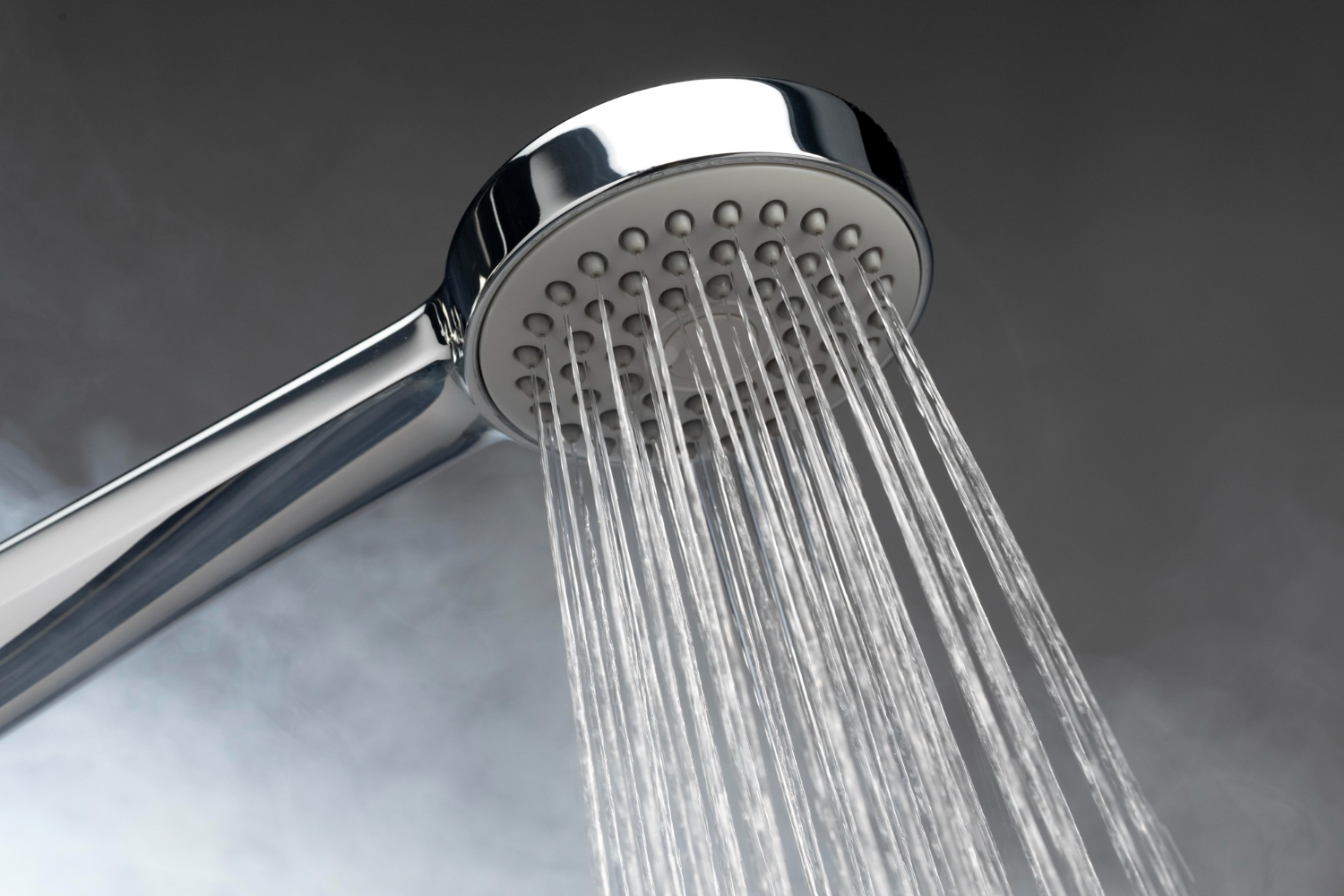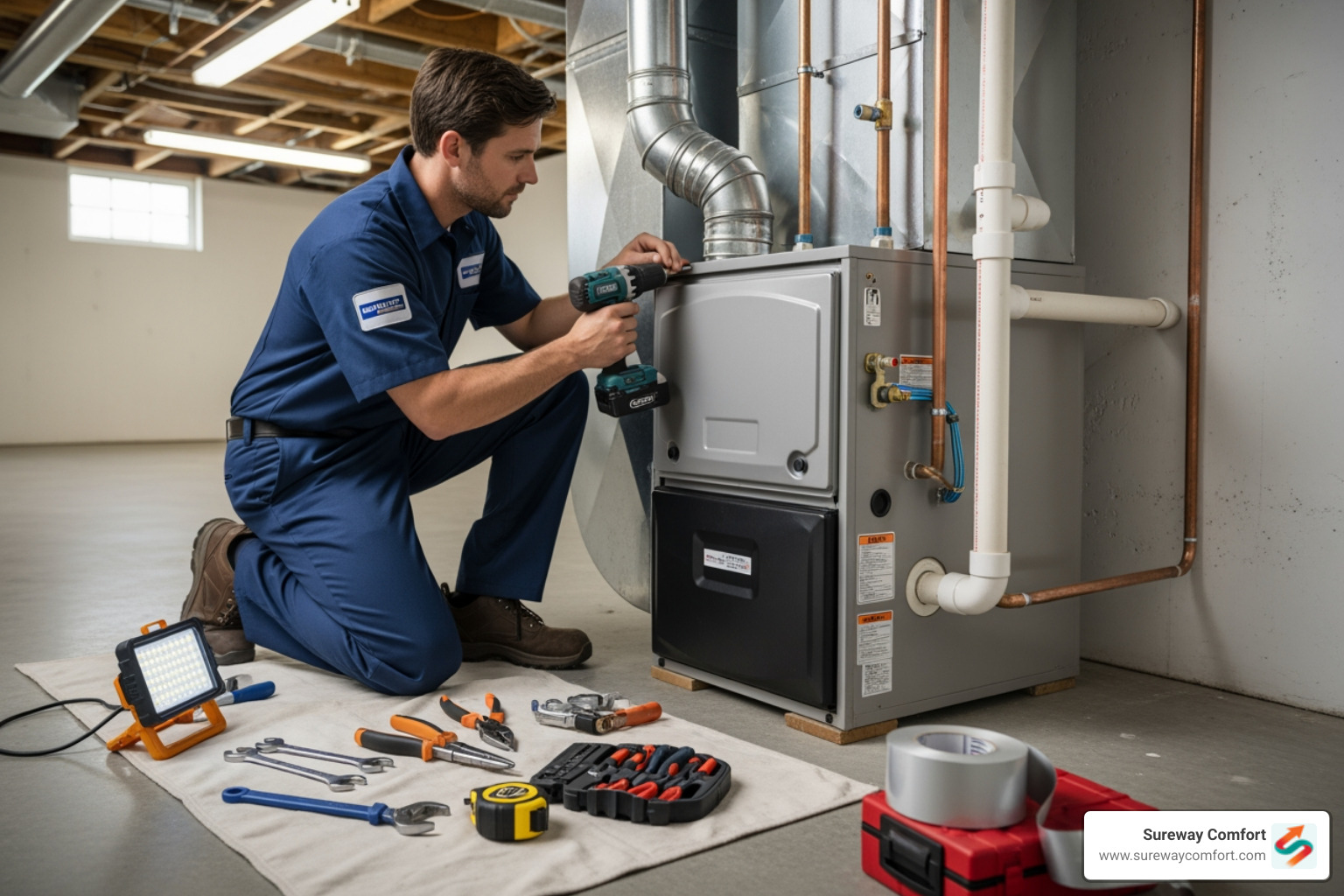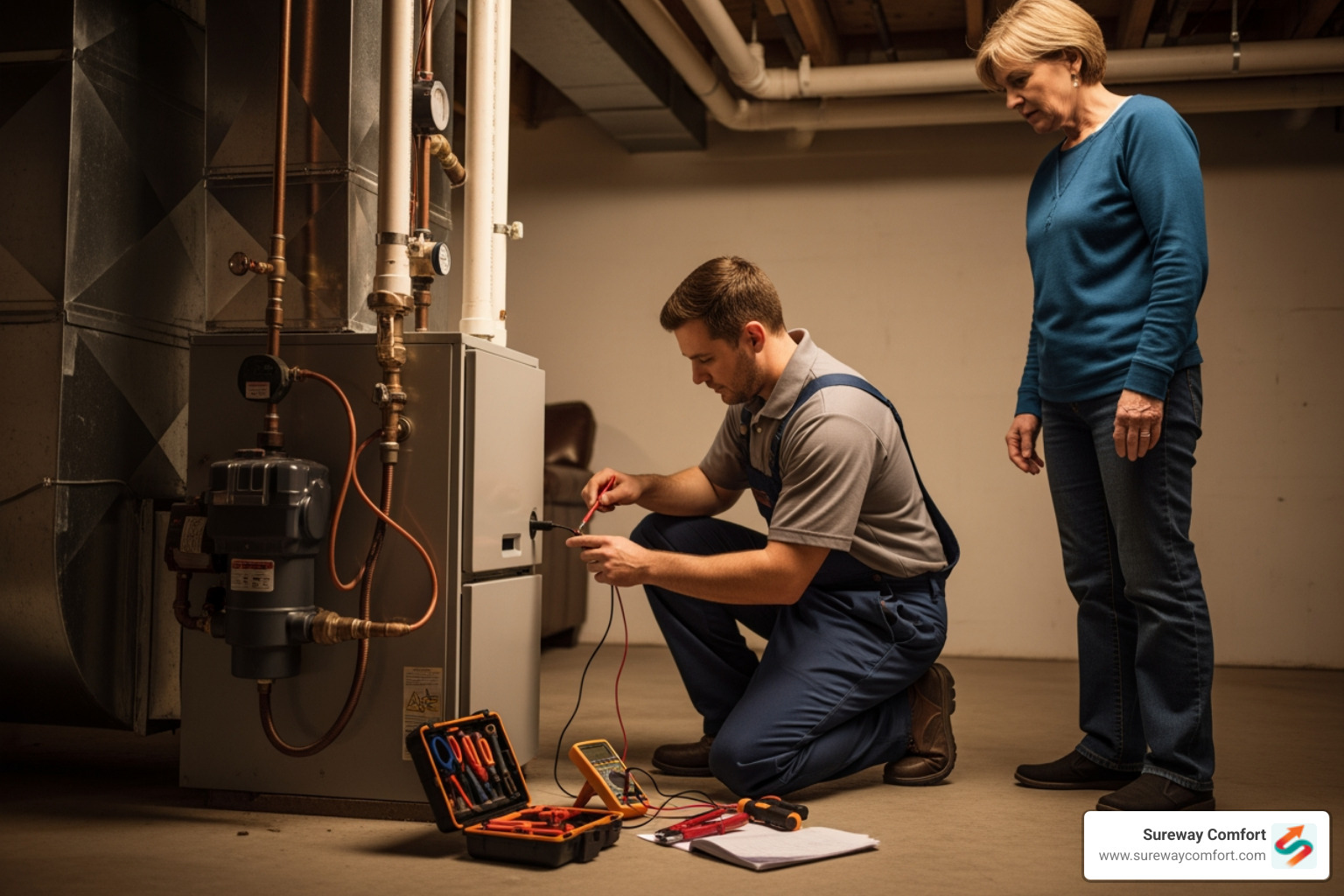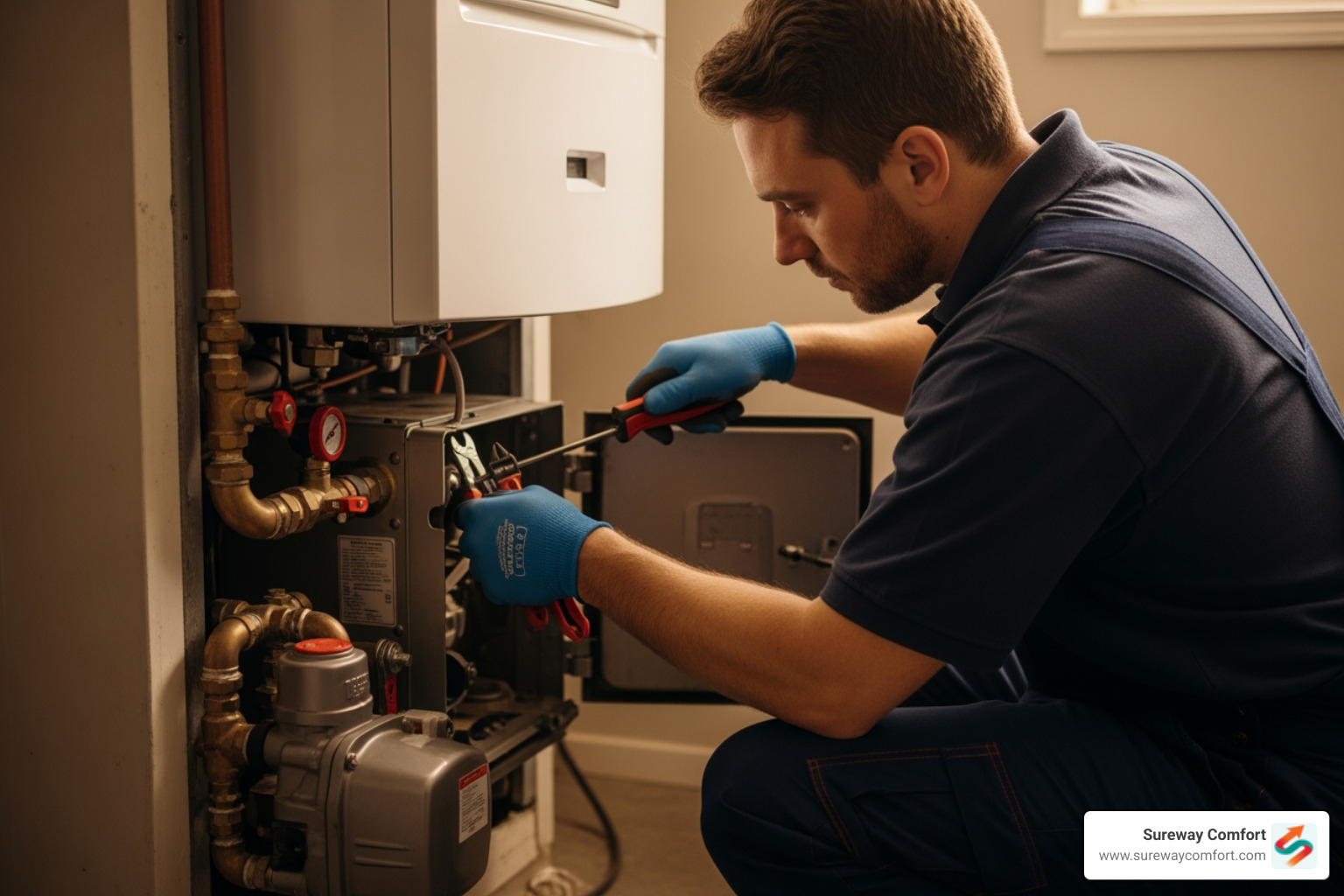In Canonsburg, dealing with a clogged kitchen sink is a common annoyance for many homeowners. It's frustrating to watch water slowly drain or, worse, see the sink fill up with standing water. These blockages don't just cause inconvenience; they can lead to more significant plumbing issues if not addressed promptly. Understanding the root causes of these clogs and how to prevent them can save you from costly repairs and keeps your kitchen functioning smoothly.
Kitchen sinks often become clogged due to various factors unique to the daily usage patterns in Canonsburg homes. From leftover food particles to the regular disposal of cooking fats, multiple culprits contribute to this issue. If neglected, clogged drains can require professional intervention to restore full functionality. Taking proactive measures will not only help you maintain a clear sink but also enhance the longevity of your plumbing system.
Common Causes of Kitchen Sink Clogs
Understanding what causes these clogs is the first step in prevention. Let's examine some of the usual suspects behind kitchen sink blockages.
1. Food Waste
- Leftover food particles are one of the main contributors to sink clogs. Many people tend to wash small food scraps down the drain, thinking it will just disappear. However, these particles often accumulate in the pipes, gradually creating a blockage that disrupts water flow.
2. Grease and Fats
- Pouring fats, oils, and grease down the sink might seem like a quick way to dispose of them, but this habit can lead to severe blockages. As these substances cool, they solidify and adhere to the insides of pipes, creating a stubborn barrier that traps other debris and restricts drainage.
3. Soap and Detergent Build-Up
- Some soaps and detergents contain substances that leave a residue when they dissolve. Over time, this residue can build up in the pipes, combining with other particles to form a clog. Regularly using hot water when rinsing these products can help mitigate this issue.
4. Foreign Objects
- Objects like utensils, scrubbers, or pieces of packaging accidentally dropped into the sink can cause significant blockages. These items obstruct the flow of water and create an immediate barrier that necessitates removal to restore normal drainage.
By being aware of these common causes, homeowners can take simple yet effective steps to minimize the risk of clogs. Implementing these preventive measures can help keep your kitchen sink clear and operational.
Prevention Tips for Avoiding Clogs
Preventing kitchen sink clogs in Canonsburg is easier when you know the steps to take. Here are some effective tips to keep your drains clear and running smoothly.
1. Proper Disposal of Food Waste
- Always avoid washing leftover food particles down the sink. Instead, scrape them into a compost bin or trash. Utilizing a garbage disposal can help, but still, be mindful of what goes into the drain.
2. Avoid Pouring Grease Down the Sink
- Oils and fats can harden as they cool, leading to significant blockages. Collect cooking grease in a container and dispose of it in the trash. By taking this simple step, you preserve the condition of your kitchen pipes.
3. Regular Cleaning
- Keep your sink strainers and drain covers clean. Regularly removing accumulated debris can prevent clog formation. It is a straightforward task that can save you plenty of hassles later on.
4. Use of Drain Guards
- Install drain guards to trap food particles and prevent them from going down the drain. This small investment can significantly reduce the likelihood of clogs.
Adopting these preventative measures ensures a cleaner, more efficient sink in your Canonsburg home.
DIY Solutions for Minor Clogs
Sometimes, even with preventive measures, minor clogs can still occur. Here are a few simple methods to address them:
- Boiling Water Method: Slowly pour a pot of boiling water down the drain. This can help dissolve light blockages caused by grease or soap build-up.
- Baking Soda and Vinegar: Mix equal parts baking soda and vinegar, pour it into the drain, and let it sit for about 15 minutes. Follow up with hot water to flush away the loosened debris.
- Plunger Technique: If water is still draining slowly, a plunger can help. Place it over the drain and pump vigorously. This motion can dislodge blockages closer to the surface.
While these DIY approaches are helpful for minor issues, always proceed cautiously and stop if the problem persists.
When to Call a Professional
Certain symptoms indicate a more severe blockage that requires professional help:
- Persistent slow draining even after trying DIY fixes
- Unpleasant odors that don’t go away
- Gurgling noises from the drain
Contacting professionals for assessment is wise in these cases. Professional technicians can accurately diagnose and tackle complicated plumbing issues, ensuring that your system is functioning correctly.
Keep Your Kitchen Sink Flowing Smoothly
By addressing the causes of clogs and implementing preventive measures, you can keep your Canonsburg kitchen sink in peak condition. Not only does this save you time and frustration, but it also extends the life of your plumbing system. When issues arise that you cannot handle alone, reaching out for professional expertise is always a sound decision.
If you are dealing with a clogged drain in Canonsburg, prompt attention is key to preventing further issues. Our professionals at Sureway Heating Cooling Plumbing understand how disruptive drain blockages can be in your daily routine. For a quick estimate or to book a service visit, please contact us today.




























.avif)



